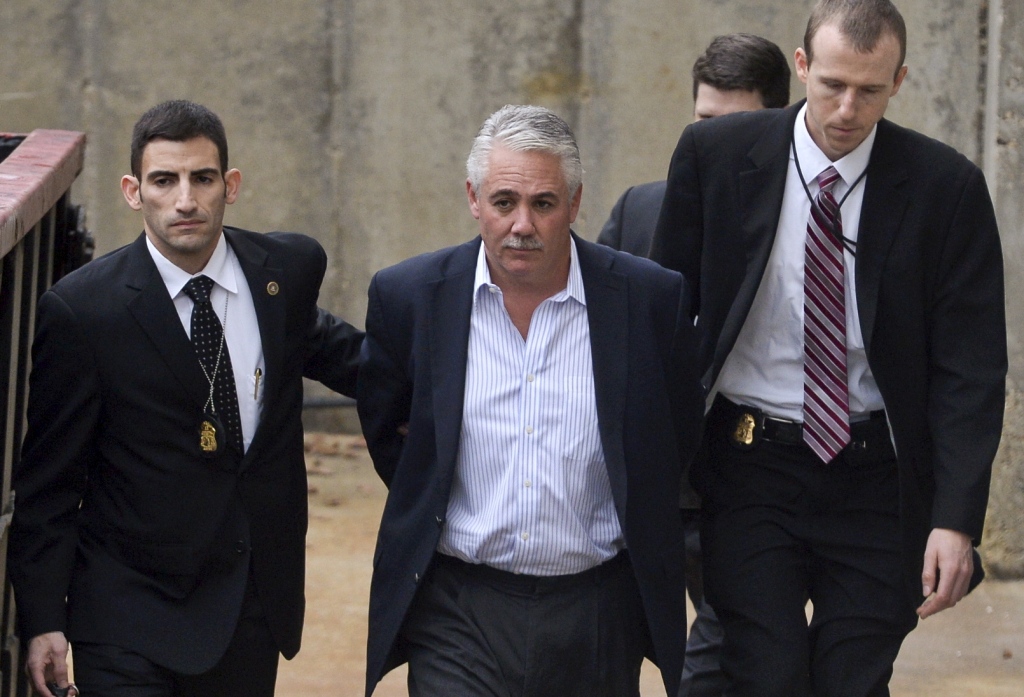Gilgo killings unsolved for 13 years because of ‘bad dudes’
If only people had paid more attention to Long Island-based true crime writer Robert Banfelder.
The 80-year-old author could have told anyone who listened years ago that the Suffolk County DA and the cops in charge of the Gilgo Beach serial killer investigation were bungling the case.
“They failed, they failed miserably,” Banfelder told The Post Thursday, referring to some of the Suffolk County law enforcement officials that were part of the lengthy so-called Gilgo 4 probe. “They thwarted everyone who was trying to help the investigation, especially the FBI. These are bad dudes who botched the case.”
Last week, Rex Heuermann was charged with three counts each of first and second-degree murder in connection with the deaths of Melissa Barthelemy, 24, Amber Lynn Costello, 22, and Megan Waterman, 27.
All three women’s remains were discovered in the marshes along Ocean Parkway near Gilgo State Park in December 2010.
He has pleaded not guilty to three counts each of first- and second-degree murder. He is also the primary suspect in the death of Maureen Brainard-Barnes, 25. She was the first to go missing, in 2007.
Banfelder, who has lived in who’s lived in the town of Riverhead, some 45 miles east of Gilgo Beach, for more than three decades, wrote two books on the case: “The Long Island Serial Killer Murders – Gilgo Beach and Beyond,” in 2020 and the sequel “Snuff Stuff” last year.
As recently as last year, he gave talks locally about what he called the case’s “culture of corruption” involving the now-disgraced hierarchy of the Suffolk County Police department and DA’s office: specifically, former police chief James Burke, former DA Thomas Spota and former Anti-Corruption Bureau Chief Christopher McPartland.
Burke was recently released after going to prison in 2016 for a cover-up involving his beating of a petty criminal who stole a bag of sex toys and pornography from his car.

In 2021, Burke’s longtime mentor Spota — who was disbarred a year before — and another ally, the top Spota deputy Christopher McPartland, were sentenced to five years in prison for their part in the cover-up.
Banfelder also blamed current County Executive of Suffolk County Steve Bellone for bungling the Gilgo case, pointing out that Bellone had been warned about Burke’s past and character prior to hiring him.
“He dropped the ball,” Banfelder said. “He hired Burke. But that was part of the problem. He hired a bad cop.”

Not long after being appointed Chief of Police in 2011, Burke removed the FBI from the Gilgo murder investigations — because, The Post reported in 2015, he knew he was also being investigated for assaulting the thief who stole his sex toys.
“Burke never wanted us involved in this [serial killer] case because he knew we were investigating him,” said a federal source.
Banfelder, because of his affinity for true crime, said he was well aware of what he called the “corruption” surrounding Burke, Spota, and McPartland.
“They all go way back,” Banfelder said.

Years ago, Banfelder had followed the strange case of a 13-year-old boy named John Pius who’d been found dead at an elementary school in Smithtown, LI, in 1979. Stones had been stuffed down the boy’s throat to asphyxiate him. Spota was the young prosecutor assigned to the case and Burke, who was just 14 at the time, was one of Spota’s key witnesses. (Burke was never implicated or charged in the crime.)
By the time Burke was the county’s top police officer, they were way too cozy, Banfelder said.
“Spota had to follow certain guidelines in a legal sense,” Banfelder said. “But Burke could do what he damn well pleased. And in a way this was all Jimmy Burke’s stomping grounds too. He was involved in prostitution and he was partying. There’s no question about that.”

The Post first reported in 2016 — and there have been similar accounts recently — that Burke attended parties with drugs and prostitutes in Oak Beach, not far from Gilgo Beach, according to John Ray, an attorney for victims Shannan Gilbert and Jessica Taylor. Ray also represented a prostitute who claimed a relationship with Burke, and per a separate source, Burke denied that relationship.
Banfelder feels sorry for the families of the dead women — who he said were dissed by many authorities because the victims were looked down upon as prostitutes.
“I feel emotional just thinking about all the time it took to make an arrest in these cases,” he said. “It’s shameful.”


Banfelder honed his coverage of serial killers when he attended the trial of Long Island postal worker Robert Shulman who was convicted in 1999 of beating three prostitutes to death with blunt objects inside his Hicksville, LI, apartment between 1991 and 1996. Banfelder was in court every day, he said, and got to know both the prosecutors and defense attorneys.
He started writing books in 1990 and has also penned hundreds of true crime articles.
As for Heuermann, he said, “He’s going to be accused of murdering the fourth one. That’s almost a given. And from there, they’re going to go on to working at these other six victims and even beyond them beyond that.”
Read the full article Here


